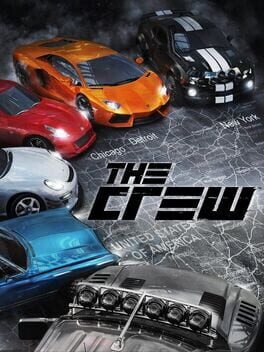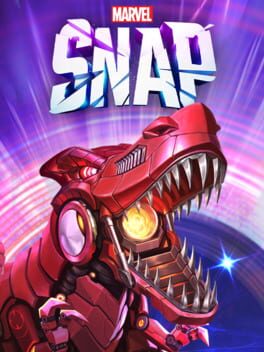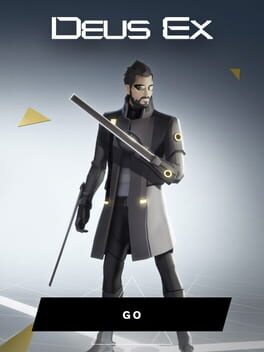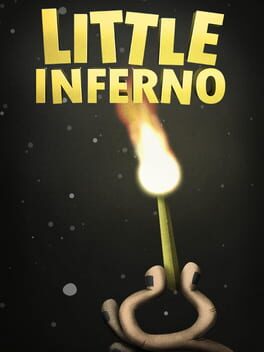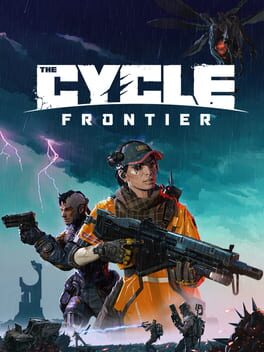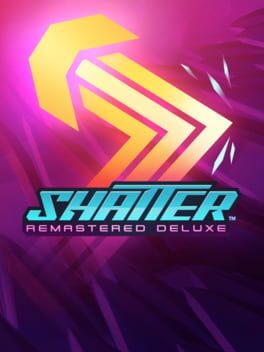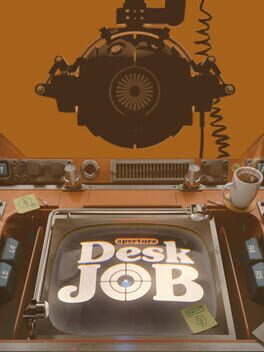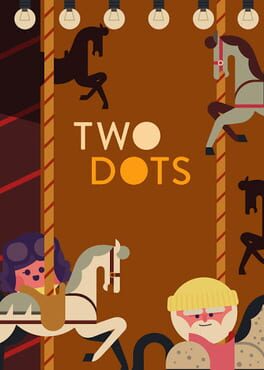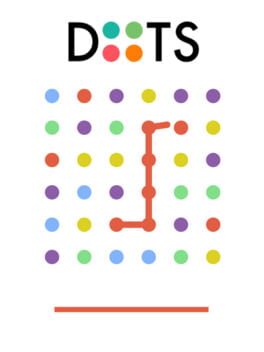internisus
BACKER
2014
While I recognize that The Crew is just another disposable helping of Ubisoft open-world slop full of map-revealing radar towers and distracting activity icons that get in your way at least as often as they represent opportunities for rewards, I can't help but feel a great affection for it. The ridiculous deep-cover gang infiltration (it's incredible how many things can be accomplished through the medium of illegal street racing) story and world flavor, however thin and clichéd, are so much more fun than the bland sports festival theming that seems to be the trend today. Race design is hit and miss, but the hits are memorable, like the time I bested a high-performance supercar with my dirt-tuned Nissan Fairlady by efficiently drifting through a series of off-road shortcuts that ran alongside and often cut across the street, a twisting duel of contrasts that felt much more interesting than a typical race between similar vehicles sharing the same circuit.
But, more than anything else, I just enjoyed tracing my way across the massive map, winding through the mountainous northeast on a rainy night to Laurent Juillet's ambient music or stomping through a southern swamp to Baby or Black Milk. I know it doesn't seem very impressive, but I think I might just be happy if a game gives me a map, a car, and a soundtrack. My love for paths and routes and mazes is something that I think about all the time in the context of videogames but rarely talk about because I don't entirely know how to explain it and doubt most people would understand, but the point here is that I take great pleasure in simply following The Crew's interstates and highways. Those relaxing cross-country trips that lasted twenty or thirty minutes before I reached New York or Los Angeles for the first time, flying down the overpass as the buildings gradually enveloped me, decelerating into the smooth cruise of an exit loop, fluidly weaving through traffic as I cleanly transitioned into a tunnel or a grid of city blocks, coolly emboldened by the Arctic Monkeys or American Princes song on the radio—those are the experiences that I'll remember most from this game.
Is that really anything remarkable for the genre? Am I overvaluing The Crew because I simply haven't played many of its influences, competitors, and successors? I honestly don't know. I look forward to finding out.
I meant to spend more time with it before it got shut down, but thankfully members of the community seem pretty confident that they can get some kind of server emulation up and running to preserve the game. I hope it won't take long. I still have to finish avenging my brother's murder by driving real good.
But, more than anything else, I just enjoyed tracing my way across the massive map, winding through the mountainous northeast on a rainy night to Laurent Juillet's ambient music or stomping through a southern swamp to Baby or Black Milk. I know it doesn't seem very impressive, but I think I might just be happy if a game gives me a map, a car, and a soundtrack. My love for paths and routes and mazes is something that I think about all the time in the context of videogames but rarely talk about because I don't entirely know how to explain it and doubt most people would understand, but the point here is that I take great pleasure in simply following The Crew's interstates and highways. Those relaxing cross-country trips that lasted twenty or thirty minutes before I reached New York or Los Angeles for the first time, flying down the overpass as the buildings gradually enveloped me, decelerating into the smooth cruise of an exit loop, fluidly weaving through traffic as I cleanly transitioned into a tunnel or a grid of city blocks, coolly emboldened by the Arctic Monkeys or American Princes song on the radio—those are the experiences that I'll remember most from this game.
Is that really anything remarkable for the genre? Am I overvaluing The Crew because I simply haven't played many of its influences, competitors, and successors? I honestly don't know. I look forward to finding out.
I meant to spend more time with it before it got shut down, but thankfully members of the community seem pretty confident that they can get some kind of server emulation up and running to preserve the game. I hope it won't take long. I still have to finish avenging my brother's murder by driving real good.
2022
I decided to stop playing—well, more like I just didn't pick it back up to fulfill my daily obligations once the new season began, enjoyed how freeing that felt, and went with it. And yet...
Maybe someone with under two weeks of play and an aversion to competitive games is not the best person to review this thing, but I think it's very good, actually? Play is quick and punchy, card powers are simple but compelling, the field division into three locations leads to interesting combos and mind games that wouldn't exist on a uniform board, collection upgrading is addictive ("frame break!"), the music is a clew of earworms, and the game as a whole feels more approachable and less burdensome than competitors owing to brief matches and small decks.
I used to play Hearthstone (really, aside from scant single-player adventures, I would just log in and make a ranking push each month for the card back even though I usually didn't feel like it), and putting a deck together was a massive slog because, with 30 cards per deck and a huge catalog of possibilities, flipping through all those pages to consider the often redundant options for so many positions along the curve made holding a strategic picture in mind daunting at best—and attempting to optimize it without copying a pre-made from some website nearly impossible. This isn't the case in Snap, where most cards seem distinct, each of the six turns represents a clear step in your tactical plan, and every space in your deck feels important. It could well be that players who've dipped into several pools are seeing a more bloated game by now, but at my level this is pretty tight. Every card has something to offer, with the exception of the few throwaway starter cards that don't bring any actual abilities to the board (and there are ways to mess around with even those).
And collecting those cards is fun in its own right. Seeing friends share images of their broad rosters of diverse characters was a big part of Snap's draw for me, especially with some of the fun and sometimes bizarro variant art available for them. Every character has their own unique logo design, and seeing them all assembled in a big set is naturally pleasurable. Abilities usually make a good logical match to the character themselves, and cards further express that character through unique visual effects both on play and on ability activation. The game just does an excellent job overall of harnessing the immense and colorful stable of characters that Marvel has to offer. I mentioned the card upgrades earlier, but it bears repeating that this sense that you're investing in cards or variants that you often play with or think are cool by upgrading their art is a very smart addition to the collectable card game format. If you've got a favorite, giving it 3D layering or animated elements just feels great. More than in many similar games, there's a powerful physicality in the cards you collect, and you come to feel like they actually belong to you.
Honestly, writing this review is dangerous. I can feel the pull to get back in there, but I'm resisting because, as enjoyable as Snap is just to play, I can't do it casually. Everything about its structure is designed to draw commitment from you through collection levels, a risk/reward rank ladder, and daily/weekly/monthly missions feeding season pass rewards. Maybe I've just been beaten down by the industry to the point where I cynically expect this stuff rather than resent its manipulation as strongly as I should, but either way the simple truth is that I don't have room in my life for another game that wants to make me play it all of the time.
I look at Marvel Snap and extrapolate the progression I've experienced so far to ask: What would I actually get out of investing in this for months of regular—frequent, even!—play? This is obviously personal, but because it's a competitive game the answer for me is very little. There's no content to conquer. There's no puzzle to solve. There's no end point. It's just about continuously being better than other players, grinding along infinite progression tracks, and acquiring more cards and cosmetic collectables. I don't deny that there's satisfaction in a win, but competitive victories never last. Beating other players isn't really meaningful or attractive to me enough on its own. So I have made the adult decision to not get sucked into this, because I know that, eventually, it will leave me feeling hollow.
And maybe it wasn't all that hard for me, after all; I just needed a single day off to remember how nice it felt not to be constantly compelled to keep up. I indulge enough games like that already, believe me. No matter how shiny, another can't be good for my mental health.
Maybe someone with under two weeks of play and an aversion to competitive games is not the best person to review this thing, but I think it's very good, actually? Play is quick and punchy, card powers are simple but compelling, the field division into three locations leads to interesting combos and mind games that wouldn't exist on a uniform board, collection upgrading is addictive ("frame break!"), the music is a clew of earworms, and the game as a whole feels more approachable and less burdensome than competitors owing to brief matches and small decks.
I used to play Hearthstone (really, aside from scant single-player adventures, I would just log in and make a ranking push each month for the card back even though I usually didn't feel like it), and putting a deck together was a massive slog because, with 30 cards per deck and a huge catalog of possibilities, flipping through all those pages to consider the often redundant options for so many positions along the curve made holding a strategic picture in mind daunting at best—and attempting to optimize it without copying a pre-made from some website nearly impossible. This isn't the case in Snap, where most cards seem distinct, each of the six turns represents a clear step in your tactical plan, and every space in your deck feels important. It could well be that players who've dipped into several pools are seeing a more bloated game by now, but at my level this is pretty tight. Every card has something to offer, with the exception of the few throwaway starter cards that don't bring any actual abilities to the board (and there are ways to mess around with even those).
And collecting those cards is fun in its own right. Seeing friends share images of their broad rosters of diverse characters was a big part of Snap's draw for me, especially with some of the fun and sometimes bizarro variant art available for them. Every character has their own unique logo design, and seeing them all assembled in a big set is naturally pleasurable. Abilities usually make a good logical match to the character themselves, and cards further express that character through unique visual effects both on play and on ability activation. The game just does an excellent job overall of harnessing the immense and colorful stable of characters that Marvel has to offer. I mentioned the card upgrades earlier, but it bears repeating that this sense that you're investing in cards or variants that you often play with or think are cool by upgrading their art is a very smart addition to the collectable card game format. If you've got a favorite, giving it 3D layering or animated elements just feels great. More than in many similar games, there's a powerful physicality in the cards you collect, and you come to feel like they actually belong to you.
Honestly, writing this review is dangerous. I can feel the pull to get back in there, but I'm resisting because, as enjoyable as Snap is just to play, I can't do it casually. Everything about its structure is designed to draw commitment from you through collection levels, a risk/reward rank ladder, and daily/weekly/monthly missions feeding season pass rewards. Maybe I've just been beaten down by the industry to the point where I cynically expect this stuff rather than resent its manipulation as strongly as I should, but either way the simple truth is that I don't have room in my life for another game that wants to make me play it all of the time.
I look at Marvel Snap and extrapolate the progression I've experienced so far to ask: What would I actually get out of investing in this for months of regular—frequent, even!—play? This is obviously personal, but because it's a competitive game the answer for me is very little. There's no content to conquer. There's no puzzle to solve. There's no end point. It's just about continuously being better than other players, grinding along infinite progression tracks, and acquiring more cards and cosmetic collectables. I don't deny that there's satisfaction in a win, but competitive victories never last. Beating other players isn't really meaningful or attractive to me enough on its own. So I have made the adult decision to not get sucked into this, because I know that, eventually, it will leave me feeling hollow.
And maybe it wasn't all that hard for me, after all; I just needed a single day off to remember how nice it felt not to be constantly compelled to keep up. I indulge enough games like that already, believe me. No matter how shiny, another can't be good for my mental health.
2016
2012
Reminds me of a Don Hertzfeldt film. There’s obvious satire here about consumer culture, but more affectingly it’s an existential crisis in miniature that will leave you thinking about all the life you’re not living and all the regrets you’ll have when the time has all gone up up the chimney, like everything else. It can’t last forever.
2022
As someone who has yet to play Tarkov but finds its structure appealing, I was initially excited by a more accessible (and colorful) version of the idea in The Cycle. And there's a lot that I enjoy about it: I like the thought process of preparation and the risk of losing what you choose to take with you, the weight/inventory management that comes from the fact that your primary goal is to scavenge, and the tension of moving through the world, listening for threats while trying not to draw attention to yourself.
But here's the problem: a lot of the people playing The Cycle gleefully treat it like a free-for-all battle royale, and I have a high tendency to lose the nearly inevitable engagements with other players. They'll hunt and kill you even when there is little to be gained, possibly for preemption but more likely just for sport. And what I've decided is that, for me at least, the flaw at the core of the game is that there is no incentive to cooperate with strangers you come across or even to just let them live; they are either a danger better eliminated than shown your back, prey who exist to fill your own pack, or rivals who will empty out the map's important loot sites if you leave them be. Other players are never a resource, and that's a big problem (as well as kind of deeply sad).
And yeah, maybe the natural response to this complaint is that I should make more of an effort to go after other players myself, to get the drop on them or at least attack on sight without pause, never giving them the benefit of the doubt. Only... I don't want to play that game. I don't want a battle royale with loot; I want a scavenging game with uncertainty. Not just because I'm not the greatest pvp combatant but also because a predetermined and constant antagonistic relationship to other players in this context is tragically uninteresting. Maybe what I want is just a pve-only version of The Cycle. There's already a degree of fear and occasional panic that I get from exploring among the alien beasts, and that could certainly be leaned into and leveraged to achieve the notes of preparation, risk, and caution that make this kind of game exciting.
I feel that The Division's Dark Zones hit a better balance in creating this kind of experience, although I am not sure I can say exactly how—only that I've seen a much greater chance of other players there simply ignoring me or even working alongside me, and yet the possibility of betrayal or outright predation always remains to keep you alert and suspicious. Maybe it's the higher time-to-kill owing to RPG systems that make outcomes less certain for those who would draw first blood. Maybe it's the more complex nature of its randomly rolled loot and the fact that taking down NPC enemies has the potential to reward something more exciting than one of two unchanging monster parts. In The Cycle, killing another player has such a higher potential for valuable loot than hunting even a pretty dangerous alien critter, but you can find some juicy drops by taking down world bosses in The Division—and the value of what you take home is much more subjective owing to builds and desired stats.
All I know is that I've had marvelously tense but ultimately peaceful encounters in The Division, but in The Cycle there's little question of whether a confrontation will occur when I come across another player. And that's not their fault. Their behavior is the product of the game's design. Maybe the developers are content with this incessant bloodbath. Maybe this is what Tarkov is like, too. Maybe this is what other players want. But it's not what I'm looking for.
But here's the problem: a lot of the people playing The Cycle gleefully treat it like a free-for-all battle royale, and I have a high tendency to lose the nearly inevitable engagements with other players. They'll hunt and kill you even when there is little to be gained, possibly for preemption but more likely just for sport. And what I've decided is that, for me at least, the flaw at the core of the game is that there is no incentive to cooperate with strangers you come across or even to just let them live; they are either a danger better eliminated than shown your back, prey who exist to fill your own pack, or rivals who will empty out the map's important loot sites if you leave them be. Other players are never a resource, and that's a big problem (as well as kind of deeply sad).
And yeah, maybe the natural response to this complaint is that I should make more of an effort to go after other players myself, to get the drop on them or at least attack on sight without pause, never giving them the benefit of the doubt. Only... I don't want to play that game. I don't want a battle royale with loot; I want a scavenging game with uncertainty. Not just because I'm not the greatest pvp combatant but also because a predetermined and constant antagonistic relationship to other players in this context is tragically uninteresting. Maybe what I want is just a pve-only version of The Cycle. There's already a degree of fear and occasional panic that I get from exploring among the alien beasts, and that could certainly be leaned into and leveraged to achieve the notes of preparation, risk, and caution that make this kind of game exciting.
I feel that The Division's Dark Zones hit a better balance in creating this kind of experience, although I am not sure I can say exactly how—only that I've seen a much greater chance of other players there simply ignoring me or even working alongside me, and yet the possibility of betrayal or outright predation always remains to keep you alert and suspicious. Maybe it's the higher time-to-kill owing to RPG systems that make outcomes less certain for those who would draw first blood. Maybe it's the more complex nature of its randomly rolled loot and the fact that taking down NPC enemies has the potential to reward something more exciting than one of two unchanging monster parts. In The Cycle, killing another player has such a higher potential for valuable loot than hunting even a pretty dangerous alien critter, but you can find some juicy drops by taking down world bosses in The Division—and the value of what you take home is much more subjective owing to builds and desired stats.
All I know is that I've had marvelously tense but ultimately peaceful encounters in The Division, but in The Cycle there's little question of whether a confrontation will occur when I come across another player. And that's not their fault. Their behavior is the product of the game's design. Maybe the developers are content with this incessant bloodbath. Maybe this is what Tarkov is like, too. Maybe this is what other players want. But it's not what I'm looking for.
2020
This constant, bursting delight reaches far beyond its corporate function—a museum tour through the hardware and software history of PlayStation and a showcase of the PS5's impressive and promising DualSense features—to become a more broadly joyful celebration of videogames. A combination onboarding tech demo and brand commercial has no right to be such a creative and fun 3D platformer, but long after there is a PS6 people will still remember and return to Astro's Playroom.
I'd been excited about Shatter Remastered Deluxe for months, but only after its release did I learn thanks to other users that it's not a remaster of the original but rather of a mobile port. Why anyone would choose to take such a circuitous path for a modern re-release of this arcade classic is quite beyond me, but the result is obvious and predictable.
I made a back-to-back comparison of the original 2010 Steam version of Shatter and this new "Remastered Deluxe" release, and it's a clear downgrade. Everything simply looks and sounds cheaper and thinner, and there's a bizarre and unforgivable choppiness to performance. I waited 12 days before testing to allow time for patches while staying inside the refund window, and it's still a dramatic disappointment.
Shatter is a wonderful game, but this is not the version of it that you should play. Buy the 2010 release on Steam for two bucks, give its .xml file a quick edit in Notepad to cover your modern resolution, and enjoy a vastly superior product to this so-called remaster.
I made a back-to-back comparison of the original 2010 Steam version of Shatter and this new "Remastered Deluxe" release, and it's a clear downgrade. Everything simply looks and sounds cheaper and thinner, and there's a bizarre and unforgivable choppiness to performance. I waited 12 days before testing to allow time for patches while staying inside the refund window, and it's still a dramatic disappointment.
Shatter is a wonderful game, but this is not the version of it that you should play. Buy the 2010 release on Steam for two bucks, give its .xml file a quick edit in Notepad to cover your modern resolution, and enjoy a vastly superior product to this so-called remaster.
2022
Cute and amusing but terribly slight, even for a free half-hour "manage your expectations" hardware demo game.
Desk Job doesn't really teach you much about the Steam Deck or even give you good opportunities to mess around with it. It's also sadly not at all a job simulator sort of game; rather than being given engaging tasks to perform, you simply follow a few prompts to press specific buttons in sequence. What barely qualifies as gameplay here is executed repetitiously to fill out the time, and the whole experience is disappointingly on-rails and cinematic. Also, the encouraged use of gyroscopic aim is frustrating because the borders of the playing field are so limited and my calibration lost its center every time I angled into the frame and my movement stopped.
It is at least a pleasure, though, to revisit the world of Portal and to spend a little more time with Cave Johnson.
Desk Job doesn't really teach you much about the Steam Deck or even give you good opportunities to mess around with it. It's also sadly not at all a job simulator sort of game; rather than being given engaging tasks to perform, you simply follow a few prompts to press specific buttons in sequence. What barely qualifies as gameplay here is executed repetitiously to fill out the time, and the whole experience is disappointingly on-rails and cinematic. Also, the encouraged use of gyroscopic aim is frustrating because the borders of the playing field are so limited and my calibration lost its center every time I angled into the frame and my movement stopped.
It is at least a pleasure, though, to revisit the world of Portal and to spend a little more time with Cave Johnson.
2019
2014
I was initially excited to see how much Two Dots has to offer. It carries the basic puzzle prototype of Dots forward to provide an extraordinary amount of levels with varied mechanical wrinkles on the core concept and specific objectives and boards that make each puzzle unique. There are unlockable avatars and other collectables to earn, helpful single-use items to amass, daily quests, and substantial side activities (I spent as much time with the hidden-object scavenger hunts as I did playing the main game), all dressed up in some charming art and pleasing music.
But this fundamental puzzle type still (perhaps necessarily) involves as much randomness as logic, which was my complaint about Dots (along with its spare arcade-like format). I bounced hard off of the very first additional mechanic introduced here: water. Whereas your objective early on is simply to connect up enough dots of various colors anywhere on the board, the second set of stages tasks you with carving water blocks across continuously connected spaces, completely inverting your focus from what you are connecting to where you are connecting it.
The shift is an interesting one, but, once I had failed 5 times straight on level 14, which requires you to accomplish the difficult task of spreading water to every single space on the board within a set number moves, I knew that I wanted to put this game away before becoming too committed to it. I quickly became aggravated over the permanent losses of the first-try level badge, multiple swapper items, and some of the expensive gold currency that I used to buy a desperate 5 extra turns on one attempt. It's one thing to have to retry over and over, but the time lockout and resource cost are too off-putting. And this is still very early on the game's huge map of levels.
What a shame. Two Dots is essentially a good game with a very generous content package that is ruined by a punitive and predatory mobile economy. Even the scavenger hunt side-game ceases to offer free access and instead charges gold for higher levels, including the final levels whose completion unlocks collectables and unique avatars. There is no way to acquire gold other than to pay money, and it is obvious to me that the costs of playing would quickly add up to surprising sums.
Some players will find themselves naturally skilled at improvisationally planning out solutions in these puzzles, and they may not fail often enough to find their resources constantly taxed. For me, however, it is apparent early on that superhuman ability would be necessary to avoid having my patience and my wallet pulled apart along the very long road on offer.
But this fundamental puzzle type still (perhaps necessarily) involves as much randomness as logic, which was my complaint about Dots (along with its spare arcade-like format). I bounced hard off of the very first additional mechanic introduced here: water. Whereas your objective early on is simply to connect up enough dots of various colors anywhere on the board, the second set of stages tasks you with carving water blocks across continuously connected spaces, completely inverting your focus from what you are connecting to where you are connecting it.
The shift is an interesting one, but, once I had failed 5 times straight on level 14, which requires you to accomplish the difficult task of spreading water to every single space on the board within a set number moves, I knew that I wanted to put this game away before becoming too committed to it. I quickly became aggravated over the permanent losses of the first-try level badge, multiple swapper items, and some of the expensive gold currency that I used to buy a desperate 5 extra turns on one attempt. It's one thing to have to retry over and over, but the time lockout and resource cost are too off-putting. And this is still very early on the game's huge map of levels.
What a shame. Two Dots is essentially a good game with a very generous content package that is ruined by a punitive and predatory mobile economy. Even the scavenger hunt side-game ceases to offer free access and instead charges gold for higher levels, including the final levels whose completion unlocks collectables and unique avatars. There is no way to acquire gold other than to pay money, and it is obvious to me that the costs of playing would quickly add up to surprising sums.
Some players will find themselves naturally skilled at improvisationally planning out solutions in these puzzles, and they may not fail often enough to find their resources constantly taxed. For me, however, it is apparent early on that superhuman ability would be necessary to avoid having my patience and my wallet pulled apart along the very long road on offer.
2013
I lost interest the moment I realized that the only available game modes are arcade puzzle types, scoring your performance on random boards under restricted time or number of moves. There could very well have been thoughtful, satisfying logic puzzles requiring the player to think carefully and plan ahead, but that was apparently beyond the very limited scope of this game.
